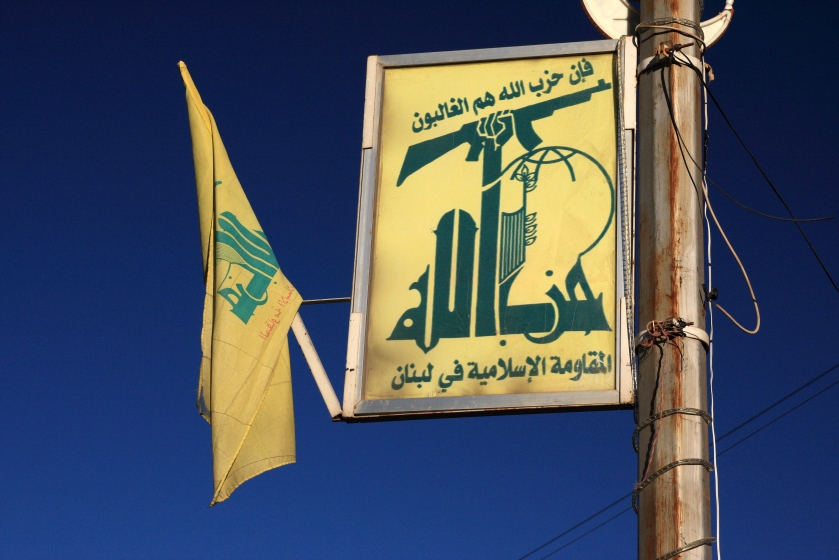
Hezbollah was founded in 1985 in Lebanon, and trained by 1,500 members of the Iranian Revolutionary Guard. Their founding objectives included the expulsion of Americans, French, and their allies from Lebanon. Since its formation, Hezbollah’s military strength has grown to be even more powerful than the Lebanese Army. The extent of the group’s influence has led many to describe Hezbollah as “a state within a state.” The organization controls radio and TV stations, provides social services, and even has seats in the Lebanese government
Hezbollah’s record of terror attacks includes truck bombings against US and French forces, suicide attacks against Jewish communities in Argentina and Thailand, and a host of other plots targeting American, French, Israel, German, British, and other countries from Europe to Southeast Asia and the Middle East. The terrorist organization has demonstrated an ability to act on a global scale and is equal to al Qaeda in size and financing.
Iran
Hezbollah claims to earn most of its income from donations, and through investments, however, Western intelligence agencies have found that Hezbollah receives the majority of its training, weapons, and financial aid directly from Iran. Some estimates suggest that Iran pays Hezbollah between $100 million and $200 million a year. Hezbollah acts as a proxy for Iran in the ongoing Iran–Israel conflict. The increase in financial assistance is likely due to Iran’s interest in preventing peace between Israel and Palestine.
Many cite Iran’s funding of Hezbollah as a reason to continue the economic sanctions that were lifted by the Iranian Nuclear deal. While the terms of that agreement strictly called for the disarmament of Iran’s nuclear program, many would like to see an end to Iran’s financial support of Hezbollah. Click here to read more about the Iranian deal in detail.
What’s more concerning is that the US made payments as high as $33.6 billion to the Iranian government that was referred to as economic relief. Mark Dubowitz, from the Foundation for Defense of Democracies, recently spoke on Fox News about the nature of these payments and their potential consequences. Click here to watch Mark Dubowtiz on YouTube.
Donations
While Hezbollah relies a great deal on financial assistance from Iran they are by no means entirely dependent on it. The group has had a great deal of success raising financial support from private donors. Many of these contributions come from wealthy Lebanese expatriates living in Africa, and South America. Israeli intelligence detected the transfer of $2 million by a human courier comprised almost entirely of donations from Lebanese business groups, private persons, and individual businessmen. The local community claimed the smuggling operation was merely an attempt to evade Senegalese taxes. Western intelligence ranks Senegal as the second-highest center for Hezbollah’s fundraising activity in Africa behind the Ivory Coast.
Charities
Hezbollah uses various charities to conceal their fundraising activities. The al-Aqsa International Foundation, a terrorist financing scheme banned by the United States, Germany, and Great Britain primarily served as a Hamas front organization but also raised funds for Hezbollah.
The “Martyr’s Organization,” admits to supplying charitable funds for the family of suicide bombers. Many other charities that are not directly related to Hezbollah donate to the group out of ideological affinity. A declassified report cites four such charities in the Detroit area alone: The Islamic Resistance Support Association, the al-Shaid Fund, the Educational Development Association (EDA) and the Goodwill Charitable Organization (GCO).
Criminal Enterprises
Hezbollah utilizes its broad power and resources to operate various criminal enterprises, including diamond smuggling, money laundering, fraud, and drug production. These operations exist all over the world including North America, South America, Europe and the Middle East.
In the United States, various criminal groups have been investigated with ties to terror financing. The crimes of these groups range from stealing and reselling of baby formula, food stamp fraud, counterfeit grocery coupons, welfare claims, and credit card theft. A senior U.S. law enforcement official concluded, “There is a significant amount of money moved out of the United States attributed to fraud that goes to terrorism.” Estimates suggest as much as $20 million to $30 million annually is generated in by the illicit scam industry in America.